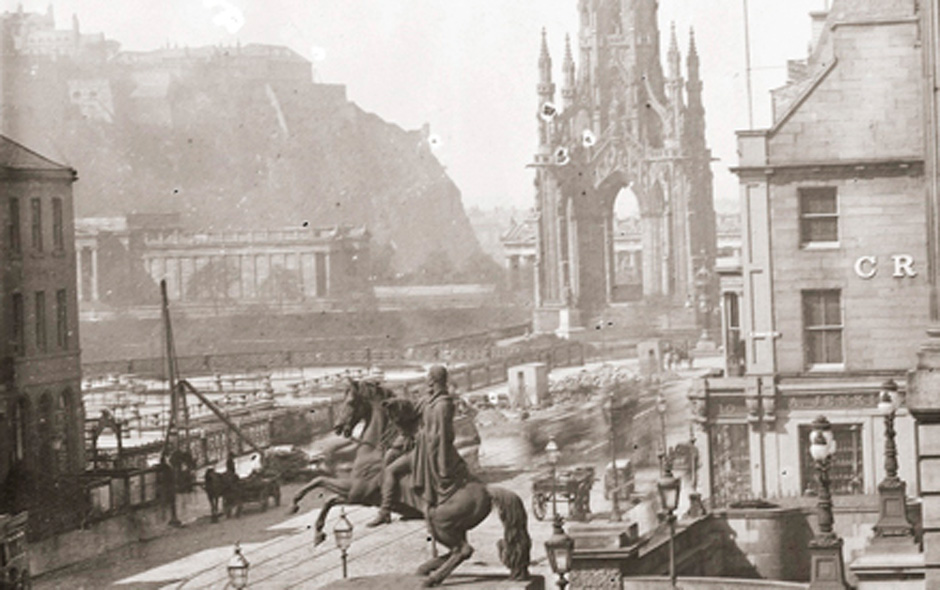
Edinburgh
Scotland
“Who would not dare To fight for such a land!”
Exclaims the patriotic wizard of the North. Ay, and to die for it, if need be, as every true-hearted Scot would die, rather than see one stain cast upon the national glory of his noble country. The character of a people is greatly influenced by the local features of the land to which it belongs; and the inhabitants of mountainous districts have ever evaded most effectually the encroachments of foreign invaders. The Scot may, perhaps, derive from his romantic country, much of that poetic temperament, that stern, uncompromising love of independence, which has placed him in the first rank as a man.
The sun at length rose; the fog rolled its grey masses upwards, and the glorious old castle emerged from between the parting clouds, like some fabled palace of the gods, its antique towers glittering like gold in the sun.
“Oh, how beautiful!” exclaimed Flora, her eye kindling, and her cheek flushing with delight.
“The situation of Quebec is almost as fine,” said Captain Forbes, who had been watching with pleasure the effect which the first sight of his native city produced upon her countenance. “It will lose little by comparison.”
“Indeed,” cried Flora, eagerly turning to the speaker, “I had formed no idea of anything in Canada being at all equal to this.”
“You have been there, Captain?” said Lyndsay.
“Yes, many times; and always with increased pleasure. Quebec combines every object which is requisite to make a scene truly magnificent—woods, mountains, rivers, cataracts; and all on the most stupendous scale. A lover of nature cannot fail to be delighted with the rock-defended fortress of British North America.”
“You have made me quite happy, Captain Forbes,” said Flora; “I have contemplated a residence in Canada with feelings of such antipathy, that your description of Quebec almost reconciles me to my lot. I can never hate a country which abounds in natural beauty.”
–Susanna Moodie, Flora Lindsay (1854)